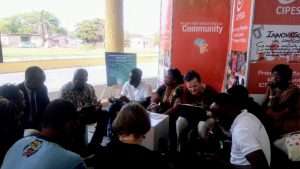By Hilda Nyakwaka |
The Forum on Internet Freedom in Africa event this year was hosted in Addis Ababa between 23rd and 26th September. This event was considered monumental because a few months prior, there were internet shutdownsand this was a testament to the progressive strides Ethiopia was making in creating an open and accessible internet for its citizens.











